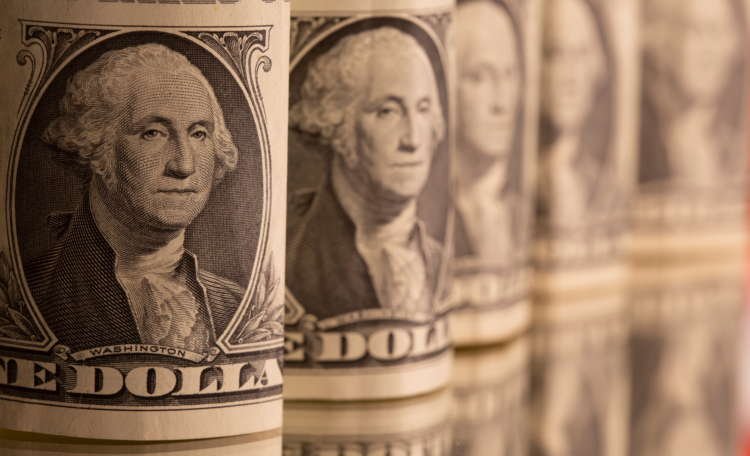Dollar hits six-week low as traders prepare for Powell
Published by linker 5
Posted on February 23, 2021
3 min readLast updated: January 21, 2026

Published by linker 5
Posted on February 23, 2021
3 min readLast updated: January 21, 2026

By Tommy Wilkes
LONDON (Reuters) – The dollar touched its lowest since Jan. 13 on Tuesday as investors shifted focus to how U.S. Federal Reserve chief Jerome Powell might respond to expectations of resurgent inflation, while commodity-linked currencies hovered near multi-year highs.
The rise in inflation expectations as investors bet on a post-pandemic economic rebound and the so-called “reflation” trade had lifted U.S. government bond yields and – briefly – the dollar until earlier this month.
But analysts expect Powell, who testifies before Congress at 1500 GMT, will provide reassurance that the Fed will tolerate higher inflation without rushing to raise rates. That might calm bond markets and eventually weigh on the dollar, they said.
“Mr. Powell will very likely reiterate that the Fed is a long way from meeting its goals and that it will likely take some time before ‘sufficient progress’ has been made to taper its bond purchase programme,” UniCredit analysts said.
Joe Capurso, Commonwealth Bank of Australia currency analyst in Sydney, said he thought Powell would deliver “a bit of a cold shower and say: ‘Mr Market you’re getting a bit ahead of yourself….the U.S. economy is long, long way from full employment.'”
The dollar index was last at 90.046, flat on the day, having earlier fallen to 89.941, its weakest since Jan. 13.
Positioning data shows investors overwhelmingly betting that a U.S. dollar, which has been dropping since last March, will keep falling as the world recovers from the COVID-19 pandemic.
The euro rose 0.1% to $1.2168. Euro zone government bond yields had also been rising, but on Monday dropped after European Central Bank President Christine Lagarde said the bank was “closely monitoring” rising borrowing costs.
Commodity-linked currencies have been among the best performers in 2021. Surging prices for materials from oil to milk powder have pushed currencies such as the Canadian, Australian and New Zealand dollars to their highest in roughly three years.
On Tuesday, the Aussie traded down slightly at $0.791 having earlier hit a high of $0.7934. The New Zealand dollar was also down while the Canadian dollar was just below its Monday high.
Sterling hit a new nearly three-year high of $1.4098, up 0.3% on the day, as investors stuck with their bets that a rapid vaccine rollout would allow the British economy to reopen over the next few months.
Prime Minister Boris Johnson laid out his step-by-step plan for ending the current British lockdown on Monday.
The Japanese yen, the worst performing major currency of 2021 because rising U.S. Treasury yields can draw investment from Japan, steadied at 105.13 per dollar, down slightly.
Bitcoin, the world’s biggest cryptocurrency, shed 11% to $48,481 after a wild overnight ride where it sank as low as $47,400.
(Additional reporting by Tom Westbrook in Singapore; editing by Barbara Lewis)
Explore more articles in the Trading category











